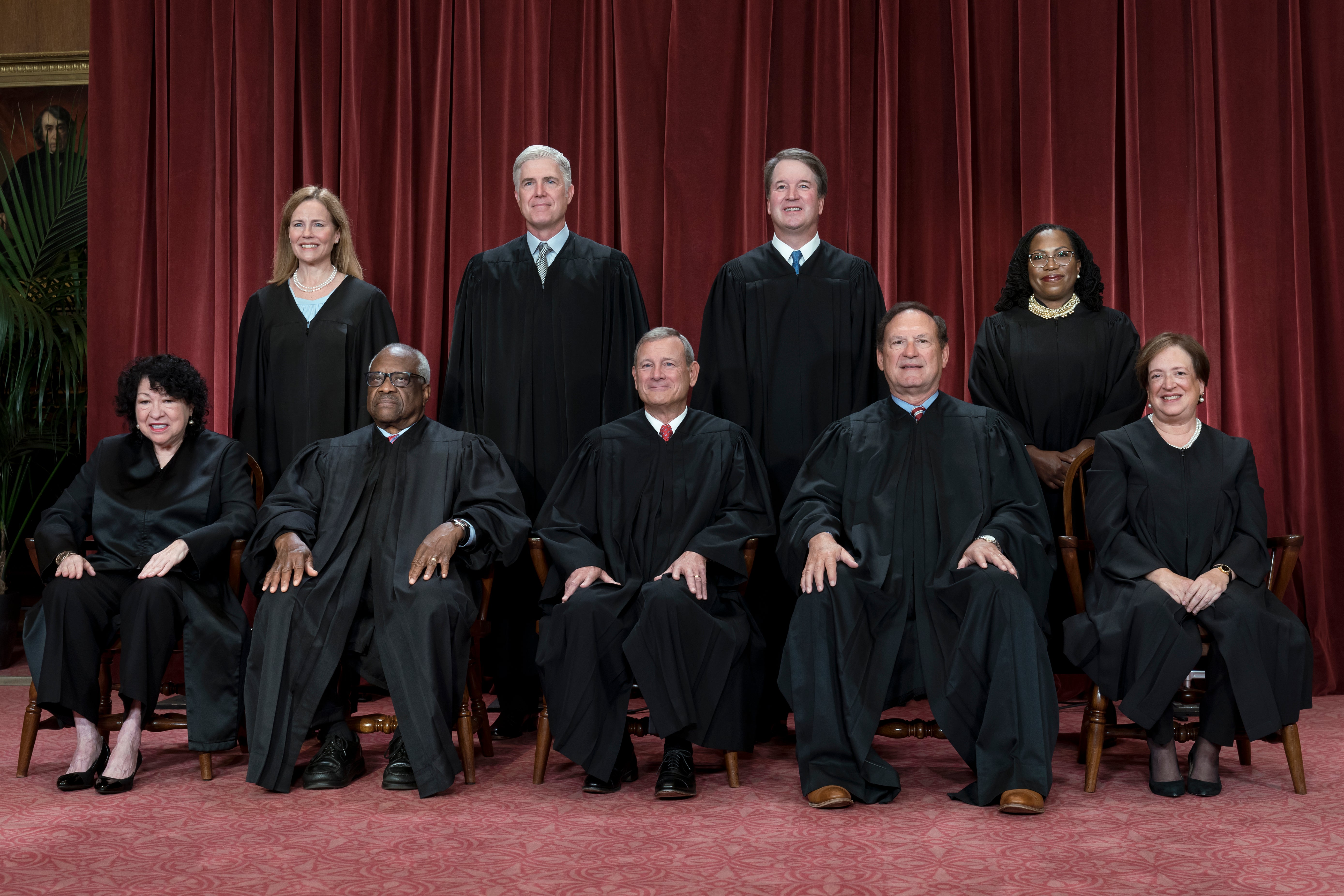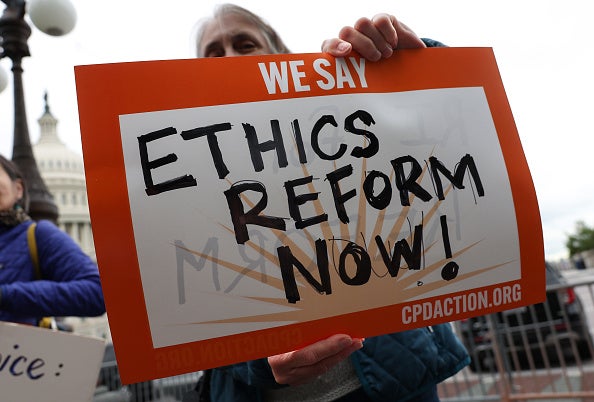Supreme Court shares first-ever code of ethics
Supreme Court adopted a new code of ethics amid mounting public pressure after a year of controversies but did not explicitly state how it would be enforced
Your support helps us to tell the story
This election is still a dead heat, according to most polls. In a fight with such wafer-thin margins, we need reporters on the ground talking to the people Trump and Harris are courting. Your support allows us to keep sending journalists to the story.
The Independent is trusted by 27 million Americans from across the entire political spectrum every month. Unlike many other quality news outlets, we choose not to lock you out of our reporting and analysis with paywalls. But quality journalism must still be paid for.
Help us keep bring these critical stories to light. Your support makes all the difference.
After months of scrutiny over Supreme Court Justices’ undisclosed vacations and gifts from wealthy political donors, the highest court in the land will adopt a formal code of ethics.
On Monday, the Supreme Court released a 14-page document outlining the rules and responsibilities of justices and a guide on how they should approach conflicts of interest.
It comes after months of investigations from ProPublica revealed Justice Clarence Thomas had accepted luxury vacations and gifts from Republican megadonor Harlan Crow – none of which had been disclosed on his prior financial disclosure documents.
Justices Samuel Alito and Sonia Sotomayor have also faced scrutiny for not disclosing their extrajudicial affairs.
In their note about the new code of ethics, the court noted that the rules and principles “are not new” as justices have long followed “the equivalent of common law ethics rules” derived from statutory provisions and other federal judicial codes of ethics.
“The absence of a Code, however, has led in recent years to the misunderstanding that the Justices of this Court, unlike all other jurists in this country, regard themselves as unrestricted by any ethics rules,” the court wrote. “To dispel this misunderstanding, we are issuing this Code, which largely represents a codification of principles that we have long regarded as governing our conduct.”
That “misunderstanding” sparked outrage within the public and members of Congress who demanded the court adopt a formal code of ethics to ensure justices rule fairly in cases. However, Chief Justice John Roberts initially refused.

As a result, public trust in the court sank to a historical low over the last year with 44 per cent of Americans having an unfavourable view of it.
Democrats on the Senate Judiciary Committee, led by Dick Durbin, opened an investigation into the matter hoping to increase pressure on the court to adopt a code of ethics. Republicans, meanwhile, have long opposed changes to the unspoken code of ethics, seeing it as an unnecessary intervention in the independent branch of government.
Following the announcement, Senator Chuck Grassley, who formerly chaired the Senate Judiciary Committee, told The Independent he was “glad” the court released a code of ethics but that it was a sign Congress did not need to intervene with legislation.
“[The court] shouldn’t have it anyway, because [the court] is an independent branch of government,” Mr Grassley said.
Senator John Cornyn, who sits on the Senate Judiciary Committee, echoed Mr Grassley’s statements, telling The Independent he was also “glad” the court created the code at their own prerogative but that any legislative intervention was unlikely.
But now, the court will abide by the new publicly available code, which explicitly includes sections about justices’ “personal and fiduciary financial interests”, their extrajudicial activities and other potential conflicts of interest when presiding over a case.
In a section about financial interest, the code says justices should “refrain” from dealings that “exploit the judicial position” or involve a just in transactions that involve lawyers or people “likely to appear before the Court”.
It also asks justices to be aware of their own finance as well as their spouses and minor children who live with them and consider whether or not their financial ties could result in an impartial ruling when taking on cases.
The court has also formally adopted the Judicial Conference Regulations on Gifts which provides guidelines on how justices and their family members should accept gifts and disclose them.

Regarding extrajudicial activities, the new code of ethics asks justices to consider if the activity detracts from their office, interferes with their performance of official duties or reflects adversely on the justice’s impartiality.
However, the code does not outline how the rules will be enforced or what punishments could result from improper conduct other than disqualification from a case.
Subscribe to Independent Premium to bookmark this article
Want to bookmark your favourite articles and stories to read or reference later? Start your Independent Premium subscription today.

Join our commenting forum
Join thought-provoking conversations, follow other Independent readers and see their replies
Comments